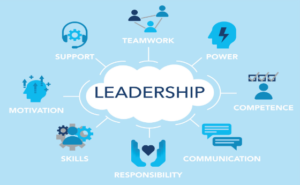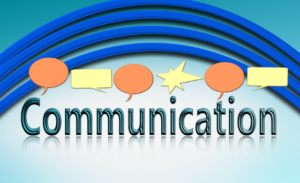What Are the Soft Skills That Employers Look For?
Technical skills and qualifications are important for any human. But having strong soft skills is just as crucial, if not more so, in today’s job market. Employers are increasingly seeking these soft skills, which show how well you interact with others. It also helps build strong working relationships and contributes to a positive office culture and modern work environment. Whether you’re applying for your first job or looking to advance your career, understanding the key soft skills employers want is essential. Let’s explore the top soft skills and how you can highlight them during your job search.
1. Communication Skills
Why They Matter
Good communication is essential for a successful workplace. In job interviews, employers often ask how you prefer to communicate, both in writing and speaking, and whether you consider yourself a good listener. The ability to communicate effectively with other staff, clients, and colleagues is vital for successful project outcomes.
How to Demonstrate Them
In your cover letter, highlight any domestic or international assignments where you communicated with team members, clients, or stakeholders.
In an interview, speak clearly and briefly, and be ready to share examples of how you’ve handled complex communication challenges in the past.

2. Teamwork and Collaboration
Why They Matter
Most jobs require working with others, so employers seek strong teamwork and collaboration skills. They want to know if you can work well with others, contribute to team success, and make the workplace more enjoyable. By showing that you’re a good team player, you also show you’re open to sharing ideas, listening to others, and working toward common goals.
How to Demonstrate Them
Give examples of past projects where teamwork played a key role in achieving success.
In your resume and interviews, use phrases like “worked with,” “collaborated with,” “assisted with,” “cooperated with,” “participated in,” and “contributed to” to highlight your teamwork experience.
3. Problem-Solving Skills
Why They Matter
Problem-solving is one of the most valued soft skills since every job faces challenges. Employers want candidates who can think quickly, assess situations, and find effective solutions quickly. The ability to solve problems efficiently highlights your resourcefulness, creativity, and resilience—qualities essential in a fast-paced work environment.
How to Demonstrate Them
Highlight specific examples where you identified a problem, crafted a solution, and successfully implemented it.
When asked about a challenge in your last role, be ready to explain how you overcame it and the results you achieved.
4. Adaptability and Flexibility
Why They Matter
The ability to adapt and stay flexible is crucial in today’s ever-changing workplaces. Employers look for candidates who can quickly adjust when plans shift, learn new skills, and adapt to new situations with ease. Being adaptable shows you’re open to new ideas, can handle unpredictability, and are ready to take on new challenges.
How to Demonstrate Them
If you adapted well to changes at work, such as taking on new responsibilities or learning a new technology, be sure to include these on your CV.
Discuss how you have handled previous shifts and your approach to learning new systems or techniques.
5. Emotional Intelligence
Why They Matter
Emotional intelligence (EI) is the ability to recognize and manage both your own emotions and those of others. People with high EI work well in teams, lead effectively, and communicate clearly. Employers value high emotional intelligence because it helps individuals handle workplace dynamics, resolve conflicts, and build positive relationships.
How to Demonstrate Them
Highlight your experiences, such as managing a team, resolving workplace conflicts, or any role that required strong interpersonal skills.
During interviews, present yourself with empathy, active listening, and self-awareness.

6. Time Management
Why They Matter
Time management involves organizing your day to meet deadlines and get everything done on time. This skill is crucial for balancing workloads, staying productive, and delivering results. In job interviews, employers seek candidates who can prioritize tasks, use their time effectively, and meet deadlines. Showcasing your time management skills demonstrates that you are reliable, efficient, and capable of handling multiple tasks without compromising quality.
How to Demonstrate Them
Include examples on your CV of how you’ve managed multiple projects or met tight deadlines to demonstrate your ability to handle similar challenges again.
When you interview, be ready to answer questions about how you manage your time and handle multiple projects and tasks.

7. Leadership Skills
Why They Matter
Even if you’re not applying for a management position, you still need leadership skills. Employers look for people who take initiative, influence others, and inspire a team to achieve goals. Leadership involves more than managing people; it’s about setting an example, driving change, and motivating others.
How to Demonstrate Them
If you’ve held a leadership position, whether formal or informal, describe it and explain the impact you made.
Use phrases like “led a team,” “mentored colleagues,” or “initiated projects” to highlight your leadership experience.

8. Conflict Resolution
Why They Matter
Conflict in the workplace is inevitable, and how you handle it can shape whether the environment is productive and positive or hostile. Employers seek candidates who can resolve disagreements constructively, mediate disputes, and find solutions that benefit everyone involved. Your ability to navigate conflict effectively demonstrates that you can keep things running smoothly and work well with others.
How to Demonstrate Them
Share examples of situations where you successfully resolved conflicts between team members or clients.
In interviews, explain how you’ve managed disagreements and helped find positive solutions.
9. Work Ethic
Why They Matter
A strong work ethic forms the foundation of professional success. Employers seek candidates they can rely on, who are willing to work hard and deliver their best. A strong work ethic demonstrates your pride in your work, reliability, and commitment to achieving success.
How to Demonstrate Them
Highlight where you’ve gone above and beyond, taken on extra duties, been dependable, and delivered excellent work.
Use words like “dedicated,” “committed,” and “consistently exceeded expectations” in your resume and interviews.
10. Creativity and Innovation
Why They Matter
As the business world becomes more competitive and changes rapidly, creativity and innovation are crucial for progress. Employers seek candidates who can think independently, generate new ideas, and find innovative solutions to problems. Demonstrating innovation shows that you’re forward-thinking, flexible, and capable of succeeding in the organization.
How to Demonstrate Them
Give examples of times when you suggested solutions to problems or developed new ideas that improved situations.
In your interviews, discuss your approach to innovation and what drives you to continuously generate new ideas.

11. Customer Service
Why They Matter
Customer service is crucial because it directly impacts customer satisfaction and loyalty. Good customer service builds strong relationships, resolves issues effectively, and reflects well on a company’s values. By ensuring a positive experience, it helps drive repeat business and enhances the company’s reputation, contributing significantly to overall business success.
How to Demonstrate Them
A strong customer service, share specific examples of how you’ve handled customer interactions effectively. For instance, describe a situation where you resolved a customer complaint quickly and to their satisfaction, highlighting your ability to listen, empathize, and provide a solution.
Additionally, emphasize your proactive approach to anticipating customer needs and improving their experience. Mention any instances where you went above and beyond, such as providing personalized recommendations or follow-up support, to show your commitment to exceptional service.
12. Cultural Awareness
Why They Matter
Cultural awareness is essential because it fosters respectful and effective interactions in diverse environments. Understanding and valuing different cultural perspectives helps prevent misunderstandings, build stronger relationships, and create an inclusive workplace. By appreciating cultural differences, you enhance collaboration, improve communication, and contribute to a positive and productive work environment.
How to Demonstrate Them
Cultural awareness, share specific examples of how you’ve successfully interacted with people from diverse backgrounds. Describe instances where you adapted your communication style or approach to respect cultural differences and ensure effective collaboration.
Additionally, emphasize your proactive efforts to learn about and integrate diverse cultural practices into your work. Mention any initiatives or projects where you actively sought out diverse viewpoints or worked to create an inclusive environment, showing your commitment to fostering respect and understanding in all interactions.
Conclusion
Including your soft skills along with your hard skills on your résumé and in job interviews can reassure prospective employers that you have the interpersonal skills needed to thrive in their company. This not only makes you a more attractive hire but also helps you build the relationships necessary for excelling, contributing to a positive environment, and having a successful career in the future.



